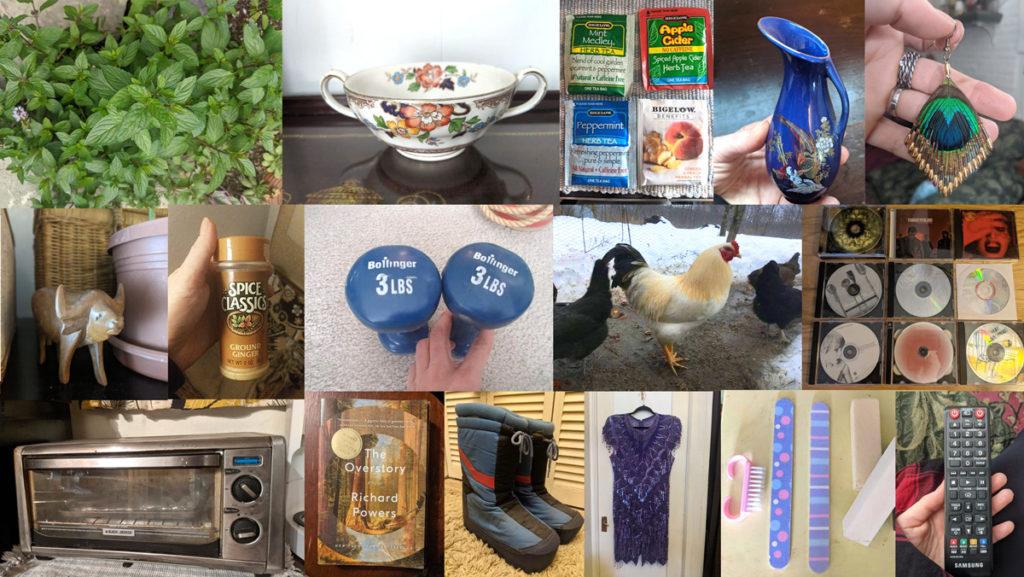In a time when communication and interactions that build up communities are forced to occur online, Ithaca community member Yayoi Koizumi has managed to bring a chapter of the international Buy Nothing Project to Ithaca. The group’s mission is to connect members of the community with the intent of increasing awareness about sustainability and promoting the resistance of buying new.
The Buy Nothing Project began as an experimental local gift economy on Bainbridge Island, Washington, in July 2013. Since then, it has become a worldwide social movement. The Buy Nothing Project offers people a way to give and receive, share, lend and express gratitude through a network of local gift economies progressing the narrative that wealth is found in relationships rather than material goods.
Koizumi said she started the Ithaca chapter of the group in September 2019 primarily with waste reduction in mind. Her initial Facebook page was a success, gaining large support from the Tompkins County community.
There is now an Ithaca group, a Lansing group and a Newfield/Danby/South Hill Ithaca group, the latter of which started in February 2021. All of these groups try to keep their membership numbers to be below a roughly 500–person maximum.
“We like to be small,” Koizumi said. “That’s our strength. When the group is so busy, it gets messy because we get no shows and real big competitions for items. We want to keep it small and keep it in the neighborhood so we can get to know our neighbors.”
Community member Sam Miau, who is an admin of the Facebook page along with Koizumi, said the primary mindset of the organization is to reduce individuals’ waste and think sustainably.
“We always want to make sure it is hyperlocal and not just people coming in from outside of our boundary just to grab stuff,” Miau said. “There are plenty of other buy and sell groups out there. We really want to focus on building the community and trust between neighbors.”
In order to be accepted to join the Buy Nothing Project’s Facebook group, an individual must be within a certain geographic area, over 21 and not in any other Buy Nothing Group. Koizumi said the group tends to keep the group between local residents. The Facebook pages operate by utilizing a series of three different types of posts. A member can post regarding gifting, receiving or gratitude.
Gifting is when members gift items, knowledge or time. Koizumi said that gifting knowledge and skills is just as important to the functioning of the group as tangible objects. Community member Rachel Lori La Valle is an admin of the Facebook group as well and said that to her, the process of gifting items helps place that emphasis on a no–waste lifestyle.
“There is something that is literal waste to one person that someone else just around the corner who is two minutes down the road might actually be looking for,” La Valle said. “People see that they don’t need to trash or throw out items, there are people who will take it and use it, and that feels really good.”
Receiving is when members ask for help, answers or objects. A gratitude post is when members give thanks for something they received through the project. For instance, Koizumi said that last summer, a member grew her own catnip in her garden and offered it up in a gift post at the end of last year. Now members who received the catnip have been posting about it in the group, showing videos of their cats playing with the catnip.
Jason Hamilton, professor in the Department of Environmental Studies, offered more insight into the impact of environmental grassroots movements. Hamilton said that any action that is taken by one person has no real positive impact on the environment because it is only one person compared to the total population.
“Whether it is a hyperlocal gift economy or anything else, the way to make this have any positive impact at all is to make it be a community and to try to take whatever lessons you learn and encourage other people to do it also,” Hamilton said. “It’s absolutely crucial to do the personal everyday things because if you don’t do that, you have no credibility, and you don’t inspire anybody, and you don’t build communities.”
Koizumi said not everybody is on Facebook, which makes it difficult for more people to participate. Koizumi said that currently, the Buy Nothing Project is working on developing web– and phone–based apps so more people can join.
“I hope others can see that material goods are immaterial,” Miau said. “Transformative change individually or within a society happens through deeply personal participation, so open your heart, make some friends because it’s a great community.”














